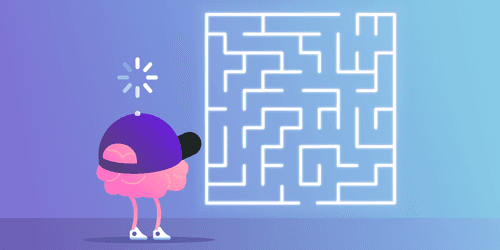Investigating Indecision: Why We Can't Seem to Make Up Our Minds
Curated from: blog.trello.com
Ideas, facts & insights covering these topics:
8 ideas
·7.73K reads
9
Explore the World's Best Ideas
Join today and uncover 100+ curated journeys from 50+ topics. Unlock access to our mobile app with extensive features.
The 37%
Mathematics dictates that you should take 37% of the time or options you have to simply look and after that, you should commit to the first option that is better than everything you’ve seen so far.
That’s the point at which you have the highest chance—in a display of mathematical symmetry, it’s a 37% chance—of making the best choice.
779
1.39K reads
The brain when we make decisions
The 2 systems of the brain that wok during decision making:
- System 1 is automatic and quick (like "something feeling off").
- System 2 is deliberate and slow (like an algorithm).
At times, these systems are at odds with each other, but research shows it's always best to trust an algorithm than your own gut.
580
984 reads
Pros-and-cons lists are flawed
There are a few biases they don't address:
- Narrow framing: the tendency to view an option as your only option.
- Confirmation bias: our tendency to gather the information that supports our preferred option.
- Short-term emotion: our tendency to have our judgment clouded when emotions run high.
- Overconfidence: our tendency to make a decision with too much optimism about how things will play out.
587
902 reads
The WRAP technique for decision making
- Widen your options: challenge yourself to consider alternatives.
- Reality-test your assumptions: run small experiments so you can know rather than predict which decision will work best for you.
- Attain distance before deciding with the try the 10/10/10 approach: How would you feel about this decision 10 minutes from now, 10 months from now, and 10 years from now?
- Prepare to be wrong: things could always go wrong. Prepare for it in advance.
980
1.33K reads
Avoid making bad snap decisions
- Successful decision-making relies on a balance between deliberate and intuitive thinking.
- Opt for less information; stick to only what is essential. We may feel more confident when doing a lot of research, but this could lead to indecision and analysis paralysis.
555
844 reads
Making snap judgments
Snap judgments are most accurate if these things are present: experience and expertise. In other words, we must train our intuition.
443
720 reads
Actively managing delay
- Find out how much time you have to make the decision.
- Wait as long as possible to choose. By giving yourself extra time, you have more opportunities to explore your options and gain valuable insight.
This works best if you're a novice, as an expert generally won’t need to delay a decision.
447
623 reads
Deciding how to decide
Take into considerations these things:
- Intuition is best used by experts, not novices.
- Algorithms are better at decisions than the human brain.
- Take your time (but not too much of it).
548
941 reads
IDEAS CURATED BY
A lot of problems would disappear if we talked to each other more than talking about each other.
Colin I.'s ideas are part of this journey:
Learn more about problemsolving with this collection
How to align stakeholders
Best practices in product management leadership
How to create value together
Related collections
Similar ideas
9 ideas
Read & Learn
20x Faster
without
deepstash
with
deepstash
with
deepstash
Personalized microlearning
—
100+ Learning Journeys
—
Access to 200,000+ ideas
—
Access to the mobile app
—
Unlimited idea saving
—
—
Unlimited history
—
—
Unlimited listening to ideas
—
—
Downloading & offline access
—
—
Supercharge your mind with one idea per day
Enter your email and spend 1 minute every day to learn something new.
I agree to receive email updates
